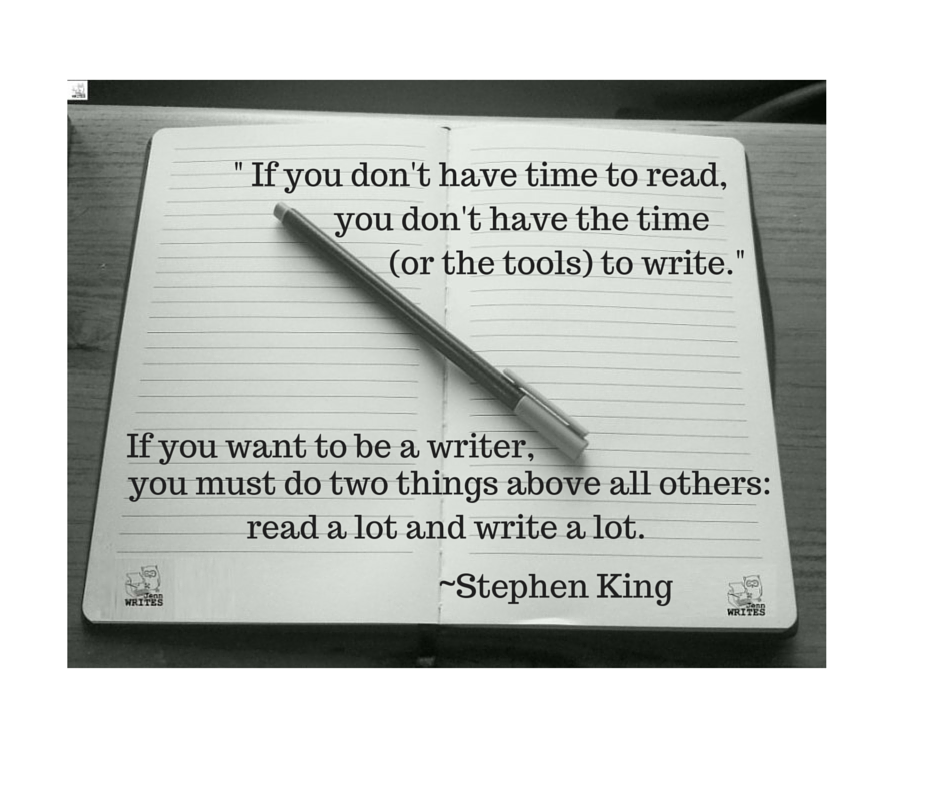After a bit of a respite from Word Wednesday, I’m back at it again. I didn’t think I would miss it but I did. I am an unabashed logophile (more on that another week) and truthfully, picking a favourite word each week isn’t a chore, it’s more of a labour of love. I’ve been working on the craft of writing more this year and have dedicated some time each week for professional development – for the first few months of the year that means reading about writing. Currently, I’m in the middle of Stephen King’s wonderful book On Writing. While I’ve never been a huge fan of King’s horror novels (I still have a mild case of coulrophobia thanks to It – but only those with Pennywise makeup. other clowns aren’t objects of abject terror but I once rode 2 stops past where I needed to get off on the TTC because there was a guy dressed as Pennywise on the platform I needed to use) I appreciate the thought and hard work he devotes to his craft.
King devotes a lot of energy to the notion that writers must be, above all, readers. He says that it really doesn’t matter if the books are classic or even good. Indeed, he argues that “One learns most clearly what not to do by reading bad prose – one novel like Asteroid Miners (or Valley of the Dolls, Flowers in the Attic, and The Bridges of Madison County to name just a few) is worth a semester at a good writing school, even with the superstar guest lecturers thrown in”. I’m inclined to agree, though there are some books I haven’t been able to force myself to finish because the grammatical errors were so egregious that they muddled the plot. At the end of On Writing, King offers up a list of books that he has enjoyed – he says he’s not Oprah and this isn’t a book club reading list but simply a list of books that he has enjoyed and that have helped him grow in his craft. This got me thinking and I’ve been trying to stretch my reading muscles in the weeks since. (Yes I read the “And Furthermore, Part II” section before finishing the book – I’m a rebel like that). One book that I picked up recently and started reading (I typically have at least 3 or 4 books on the go at any given time – I pick and choose which book to read depending on my mood) is the 1961 classic Stranger in a Strange Land by Robert Heinlein. It was here that I came across the word I want to write about today.
There’s no etymology of this word since it is out of the mind of Heinlein. I have many awesome and geeky friends who use this word often enough that over the years, I’ve figured out the meaning by osmosis. I didn’t truly grok it until I read the definition given by Heinlein in the book:
Grok means to understand so thoroughly that the observer becomes a part of the observed—to merge, blend, intermarry, lose identity in group experience. It means almost everything that we mean by religion, philosophy, and science—and it means as little to us (because of our Earthling assumptions) as color means to a blind man.
So now when a friend comments that they grok something, I can smile knowing that I’m in the know. I grok what it means to grok.
Grok (grok) verb
- To understand thoroughly and intuitively.

